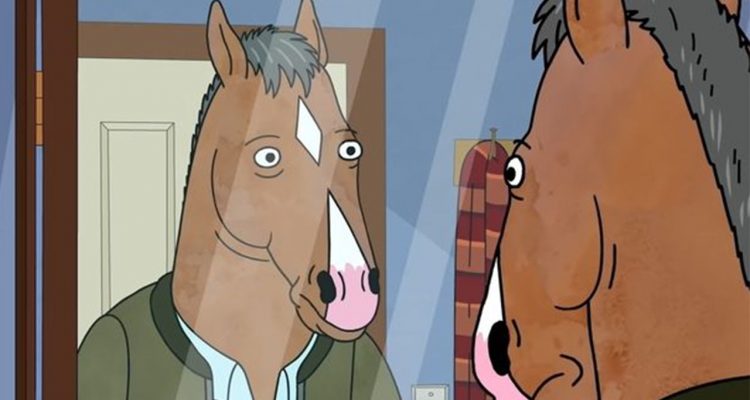Netflix concluded BoJack Horseman with the second part of its sixth season on Jan. 31. Although the series finale was bittersweet, as it is with all series, it’s one that was poignant, meaningful and thought-provoking. As much as we, collectively as a unit, hate to say goodbye to a show that gave such complex, funny and realistic cast of characters that were loved for so long, we’re ready to say goodbye. Get ready for some spoilers!
Season six sees a lot of the open issues of the earlier seasons get blown open and then quickly resolved. Last season BoJack (Will Arnett) was in a bit of trouble as it was discovered by a reporter that he lied about his whereabouts during his friend, Sarah Lynn (Kristen Schaal)’s death. Though he told police that he received a call from her and thus rushed to the scene to find that she overdosed in the planetarium, that was actually a lie. Instead, he was on a month-long bender with her where he attempted to make amends. While drinking and doing copious amounts of drugs, he and Sarah Lynn went to visit a friend’s daughter who he almost had an underage relationship with, his sister and his friends. They ended their bender looking at the stars in the planetarium where Sarah Lynn overdosed on heroin BoJack had with him, poetically named after him, “BoJack.”
The reporters know all that BoJack lied about Sarah Lynn’s death before the beginning of season six, but don’t discover she overdosed on drugs BoJack gave her, nor do they know about the issues with the underage girl until talking to BoJack friends until about halfway through the season. Once BoJack discovers that the story is coming out, he tries to beat the public opinion and do a tell-all interview in an attempt to make him come out on top of this controversy.
This backfires as the public supports him–almost too much–blindsiding and enchanting BoJack that maybe he could do another interview to get him more love from the public. In the second interview, he trips and reveals too much, turning the public against him and thus sending him into another spiral.
This may be a controversial opinion, but the second to last episode of the series should’ve been the show’s last. What gave BoJack Horseman its magic was it’s rejection of the classic television show model. Instead it chooses to show the darker side of the entertainment world, focusing on what we as an audience also don’t see. The last episode doesn’t follow this standard. Though, I won’t lie, it’s nice to see a satisfying end for all my favorite characters and to know that they’re all in a good place. Yet, it would’ve been more cool and groundbreaking for a show that sought and successfully broke the television mold, to continue with this practice. Ending it with me hysterically sobbing while watching BoJack have a hallucination of him just asking Diane (Alison Brie) how her day was… it just needed to end that way.
They say that because of the time we spend with television characters, we often find ourselves so invested in their lives and stories that we become a part of their lives as invisible ghosts. Because of that, television characters often feel like friends: we get mad when they mess things up and get excited when they’re doing what we feel is right. While watching “BoJack Horseman,” the characters really do become a part of your life and affect you emotionally. So much so, that we have no idea what shows to look forward to now. We’ll be waiting for something to step up to the plate.


Leave a Reply